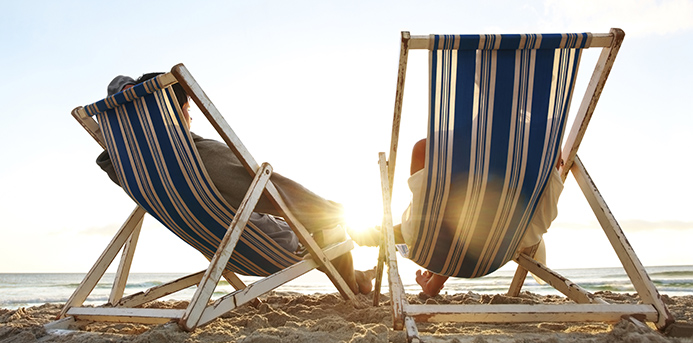We all know the downside of the lagging real estate market is that many of our houses are worth less than they were a few years ago.
But, the upshot is that if you’re in the market for a second home—for a vacation getaway, an investment property or a pied-a-terre—there are certainly some deals to be had.
Financing Your Future
“If you have the wherewithal to buy that second home—which means you don’t need the money for five years—you could eventually do very well,” says Keonig & Strey realtor Jonathan Dick.
But, the Lake Forest realtor says you should consider a number of factors before purchasing a second home. In general, he says you should not finance any portion of a second home that will be used for leisure.
“Vacation homes are a very expensive proposition,” Dick says. “You have real estate taxes, upkeep, and electric and heating costs.”
If you are purchasing a second home that you eventually plan to use as your primary residence, taking out a second mortgage may make more sense. If you plan to head south for retirement, for example, Dick says many homes in places like Scottsdale and Miami are selling for about half of what they cost just a few years ago. In that case, you could take advantage of a bargain today and then use the proceeds from the sale of your current home to pay down the second mortgage.
Consider the Costs
If you plan to purchase a property to rent, then it becomes more of a business decision. Dick advises his clients to consider all of the costs that come with a rental property. In addition to mortgage payments and taxes, you also need to think about possible renovation expenses and maintenance and marketing costs.
“I’d be very careful about financing the entire thing,” Dick says of investment properties. “If it sits there empty for two or three months, that can cost you a lot of money.”
Beware of Short Sales and Foreclosures
Marlene Bass, a Prudential Rubloff Properties realtor with 25 years of experience selling North Shore real estate, says three-bedroom houses with basements attract the most renters. For condos, she advises purchasing in a building with low assessments. Bass also says to consider the quality of schools and the attractiveness of the neighborhood when buying a rental property.
Bass cautions second-home buyers to be careful when purchasing in a short sale or foreclosure situation.
“When you walk into a foreclosure, it is a mess. People are angry when they get out of those houses, and they do everything they can to destroy the house,” she says. “So, it’s not always a good deal.”
Short sales, Bass says, can be attractive financially, but oftentimes end up being hassles because of all of the paperwork required by banks. She says she’s been dealing with the red tape of one short sale for more than a year.
Shop Around
North Shore Community Bank and Trust senior vice president Mark Stec says the rule of thumb for a second mortgage is the same as for your first: shop around. In addition to looking for favorable terms, Stec says you should also seek a lender who is familiar with the region where you plan to buy.
“Depending on what state you are buying in, I would talk to a local lender, for the simple fact that they have more knowledge about the area than you do,” he says.
Think Long-Term
Jennifer Czerwinski, also a North Shore Community Bank and Trust vice president, specializes in estate planning. She reminds people not to forget about your long-term planning when purchasing a second home. For example, she says it’s important to place an out-of-state home in trust, so it doesn’t get caught up in another’s state’s probate when you pass it to your heirs.

